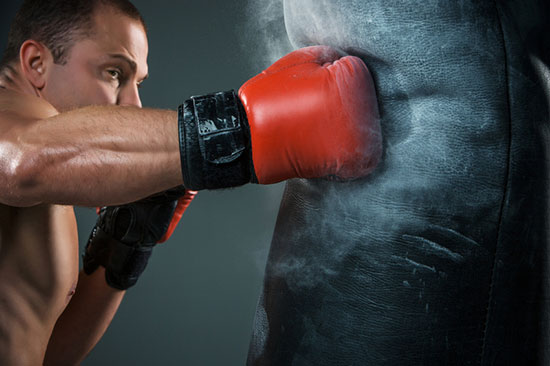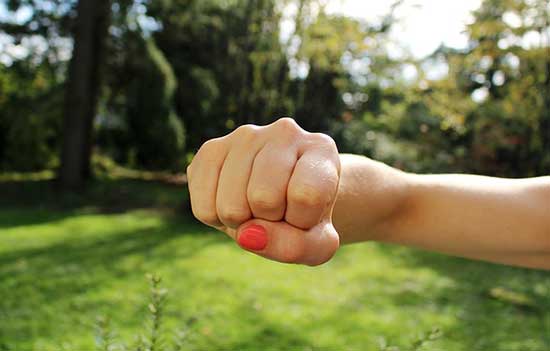Tai Chi and boxing are two popular martial arts with distinct styles, techniques, and philosophies. While both share a common goal of improving physical and mental well-being, the methods used to achieve these objectives differ significantly.
Contents
Origins and History
Tai Chi
Tai Chi, also known as Tai Chi Chuan, is a Chinese martial art that has its roots in ancient Taoist practices. Its origins can be traced back to the 12th century when it was developed by the legendary Zhang Sanfeng.
The art emphasizes slow, fluid movements and mindfulness, making it a popular form of exercise for health and stress relief.
Boxing
Boxing, also known as pugilism, is a combat sport with ancient origins. The earliest evidence of boxing dates back to ancient Egypt, around 3000 BCE.
Boxing as we know it today, however, originated in England in the 18th century, with the establishment of the London Prize Ring rules.
Techniques and Forms
Tai Chi Techniques
Tai Chi consists of a series of movements, or forms, that are performed in a continuous, slow, and fluid manner.
These movements are designed to cultivate and balance the body’s vital energy, known as “Qi.” Tai Chi techniques include weight shifting, circular motions, and deep breathing exercises, which promote relaxation, flexibility, and balance.
Boxing Techniques
Boxing focuses on striking techniques, primarily using fists. Boxers employ various punches, such as jabs, crosses, hooks, and uppercuts, along with defensive maneuvers like slips, rolls, and footwork.
Boxing emphasizes speed, power, and accuracy, making it a highly effective striking art.
Training and Fitness Benefits
Tai Chi Benefits
Tai Chi offers numerous health benefits, such as improved balance, flexibility, strength, and coordination. Its gentle, low-impact nature makes it suitable for people of all ages and fitness levels.
Practicing Tai Chi has also been shown to reduce stress, enhance mental clarity, and improve overall well-being.
Boxing Benefits
Boxing provides a full-body workout, targeting the arms, shoulders, core, and legs. It is an excellent form of cardiovascular exercise, improving stamina, endurance, and overall fitness.
Boxing also helps to develop speed, agility, and coordination, making it a popular choice for those seeking a high-intensity workout.
Mental and Emotional Benefits
Tai Chi
Tai Chi is often referred to as “moving meditation” due to its focus on mindfulness and deep breathing.
Practitioners cultivate a calm, focused state of mind, which can help to reduce stress, anxiety, and depression.
Additionally, Tai Chi encourages patience, discipline, and self-awareness, leading to improved emotional resilience and mental clarity.
Boxing
Boxing also offers mental and emotional benefits, as it requires concentration, discipline, and determination.
The physical exertion involved in boxing helps to release endorphins, which can improve mood and reduce stress. Furthermore, the sport encourages self-confidence, mental toughness, and strategic thinking.
Application in Self-Defense
Tai Chi
Although Tai Chi is often practiced for its health benefits, it is fundamentally a martial art with self-defense applications.
Its techniques focus on redirecting an opponent’s force, using balance and leverage to neutralize attacks.
However, the self-defense aspect of Tai Chi is typically not emphasized in modern practice, and its effectiveness in real-life situations may be limited compared to other martial arts.
Boxing
Boxing is a highly effective martial art for self-defense, as it focuses on powerful, accurate striking and strong defensive skills.
The footwork, speed, and agility developed in boxing training can be invaluable in evading and countering attacks.
However, it is essential to note that boxing does not include grappling or ground-fighting techniques, which may be necessary for certain self-defense situations.
Competition and Sportsmanship
Tai Chi
Competitive Tai Chi, also known as “push hands” or “tui shou,” involves two practitioners working together to unbalance or uproot their opponent.
This form of competition emphasizes sensitivity, timing, and technique, rather than brute strength.
However, Tai Chi competitions are relatively rare compared to other martial arts, and the primary focus remains on personal growth and health benefits.
Boxing
Boxing is a popular and widely televised sport, with many professional and amateur competitions held worldwide.
Boxing matches are typically divided into rounds, with the winner determined by points or knockout.
Sportsmanship is an essential aspect of boxing, and competitors are expected to adhere to a code of conduct that promotes respect and fair play.
| Aspect | Tai Chi | Boxing |
|---|---|---|
| Origin | Ancient Chinese martial art | Ancient combat sport, modernized in England |
| Techniques | Slow, fluid movements; weight shifting, circular motions, and deep breathing | Fast, powerful strikes; various punches and defensive maneuvers |
| Physical Fitness Benefits | Improved balance, flexibility, strength, and coordination; low-impact exercise | Full-body workout, cardiovascular exercise, speed, agility, and coordination |
| Mental and Emotional Benefits | Stress reduction, mindfulness, patience, and self-awareness | Concentration, discipline, self-confidence, and mental toughness |
| Self-Defense | Redirecting opponent’s force; limited effectiveness in modern practice | Powerful striking and strong defensive skills; lacks grappling and ground-fighting techniques |
| Competition | Rare; emphasizes sensitivity, timing, and technique in “push hands” | Popular and widely televised; matches determined by points or knockout |
| Intensity | Gentle, meditative practice | High-intensity workout |
Which One Is Right For You?
Choosing between Tai Chi and boxing depends on your personal goals, interests, and fitness level. If you are looking for a gentle, low-impact form of exercise that emphasizes relaxation and mindfulness, Tai Chi may be the better choice.
On the other hand, if you prefer a high-intensity workout that focuses on striking and cardiovascular fitness, boxing may be more suitable.
It is important to try both arts to determine which one resonates with you the most. Many practitioners find value in training both Tai Chi and boxing, as they offer complementary benefits and techniques.
Conclusion
Tai Chi and boxing are both fascinating and rewarding martial arts with unique techniques, philosophies, and benefits. While Tai Chi emphasizes relaxation, balance, and mindfulness, boxing focuses on power, speed, and agility.
Ultimately, the choice between these two arts depends on your personal preferences and goals. By exploring both, you can enrich your physical and mental well-being while developing valuable self-defense skills.





